On July 31, in Ho Chi Minh City, the Economic - Finance Magazine ( Ministry of Finance ) in collaboration with Vinexad organized a seminar with the theme "Financial policy for developing green logistics". At the seminar, Ms. Vu Thi Anh Hong, Deputy Editor-in-Chief of the Economic - Finance Magazine, said that the logistics industry is playing a pivotal role in the Vietnamese economy with a market size of about 40-42 billion USD and a growth rate of 14-16%/year.
Ms. Hong also pointed out the considerable pressure on operating costs, accounting for 16-18% of GDP and large carbon emissions. According to her, if the industry does not switch to a green logistics model, it will be difficult to maintain growth and meet global standards.
Sharing the same view, Mr. Tran Thanh Hai, Deputy Director of the Import-Export Department ( Ministry of Industry and Trade ), said that green logistics will be the key to help Vietnamese enterprises increase their resilience and meet market requirements, especially the EU's carbon tax policies (CBAM). Mr. Hai emphasized that green certification will soon become an important "commercial visa" to help businesses penetrate demanding markets.
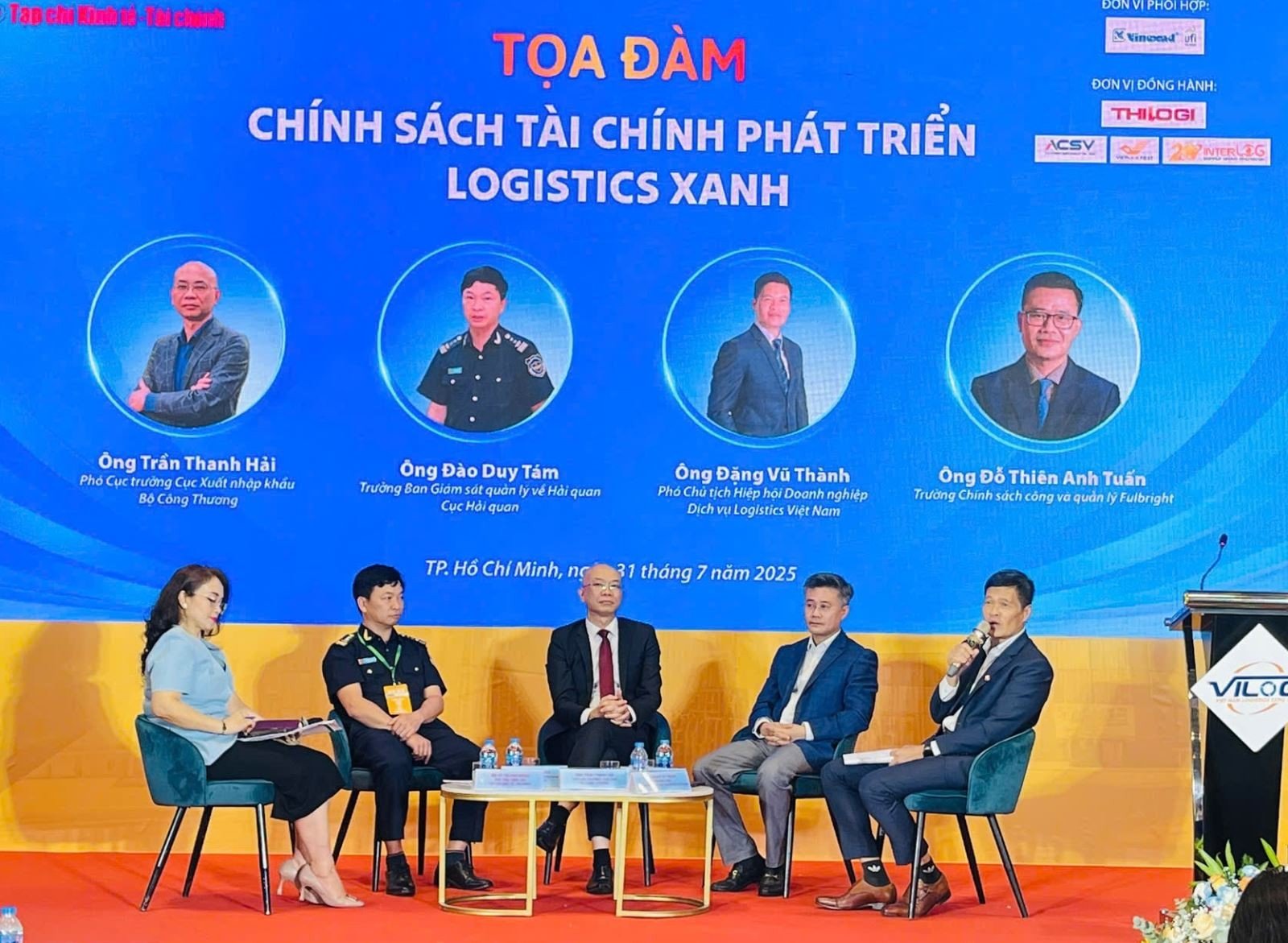 |
| Delegates shared solutions for developing the logistics industry at the seminar "Financial policy for developing green logistics" held on the afternoon of July 31 in Ho Chi Minh City. (Photo: Tin Tuc and Dan Toc Newspaper) |
Currently, Vietnamese enterprises, especially small and medium enterprises, are still facing numerous barriers in the journey of green logistics transformation. According to Ms. Ngo Thi Thanh Vy, Deputy General Director of Long An International Port, Vietnam has recently proactively built a national logistics development strategy and invested heavily in seaport infrastructure.
With the characteristics of being a strategic transit center in the South - an area that accounts for about 45% of the total cargo volume passing through the country's ports, Long An International Port is proving that a seaport is not only a loading and unloading place but also a green innovation hub in the entire logistics chain. However, to realize its big plans, the unit needs strong support from financial policies: from green credit, tax incentives to logistics development funds.
According to Ms. Thanh Vy, investments in environmentally friendly transportation, energy-saving warehouses or digital emission management systems are not small and not all businesses have the potential to implement them without appropriate support mechanisms. To overcome difficulties, businesses expect to expand their cooperation networks with domestic and foreign partners to build a comprehensive, modern, sustainable logistics ecosystem and promote digitalization.
Mr. Dao Duy Tam, Head of the Customs Management and Supervision Department (General Department of Customs) said that the customs sector has now comprehensively digitized the customs clearance process with the support of AI, blockchain, big data, QR codes, etc., helping to shorten time, reduce costs and especially contribute to reducing emissions in logistics operations.
Accordingly, 99.56% of enterprises have implemented electronic customs procedures, an encouraging figure. However, for green logistics to truly become a mainstream trend and spread to all business segments, management agencies must still focus on building and regulating a synchronous financial ecosystem. Specifically, there needs to be preferential policies on taxes, green credit, loan guarantees, support for technological innovation, and simplification of administrative procedures, all of which must be linked within a comprehensive and unified policy framework.
From a business perspective, Mr. Tony Anh, Deputy General Director of ITL Group, shared that heavy investment in technology such as eFMS, eTMS, WMS and the VELA digital logistics platform has helped digitize almost the entire operation chain. "Through digital transformation, we not only improve our competitiveness but are also ready to meet the increasingly stringent requirements of international partners," said Mr. Tony Anh.
According to economic experts, financial policy is the fundamental factor for business transformation. Businesses expect the Government to soon issue a comprehensive policy package, clearly design financial tools and have close coordination between relevant ministries and branches.
Source: https://thoidai.com.vn/logistics-xanh-dong-luc-cho-chu-ky-tang-truong-moi-215230.html




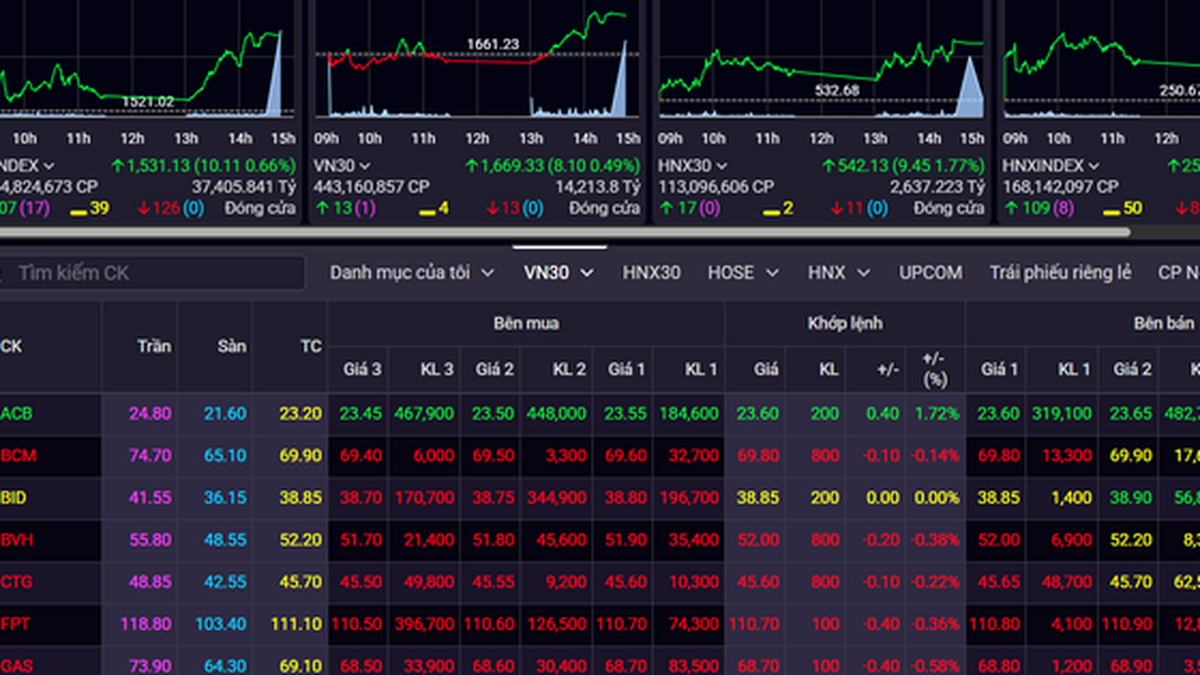



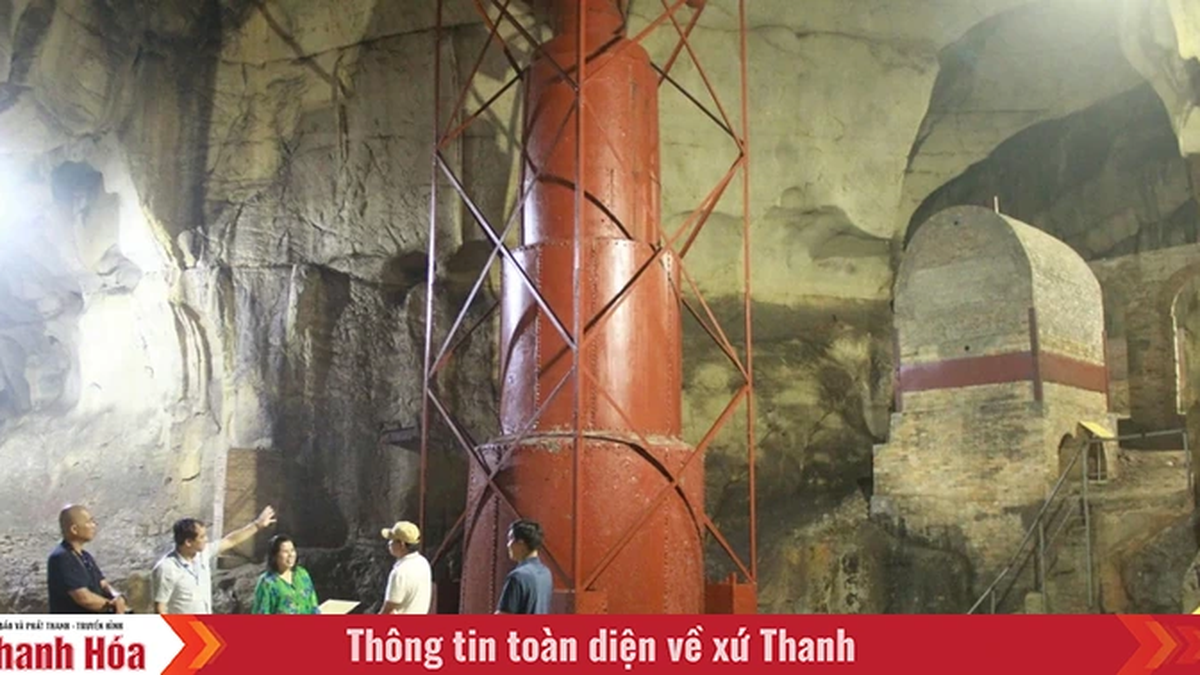
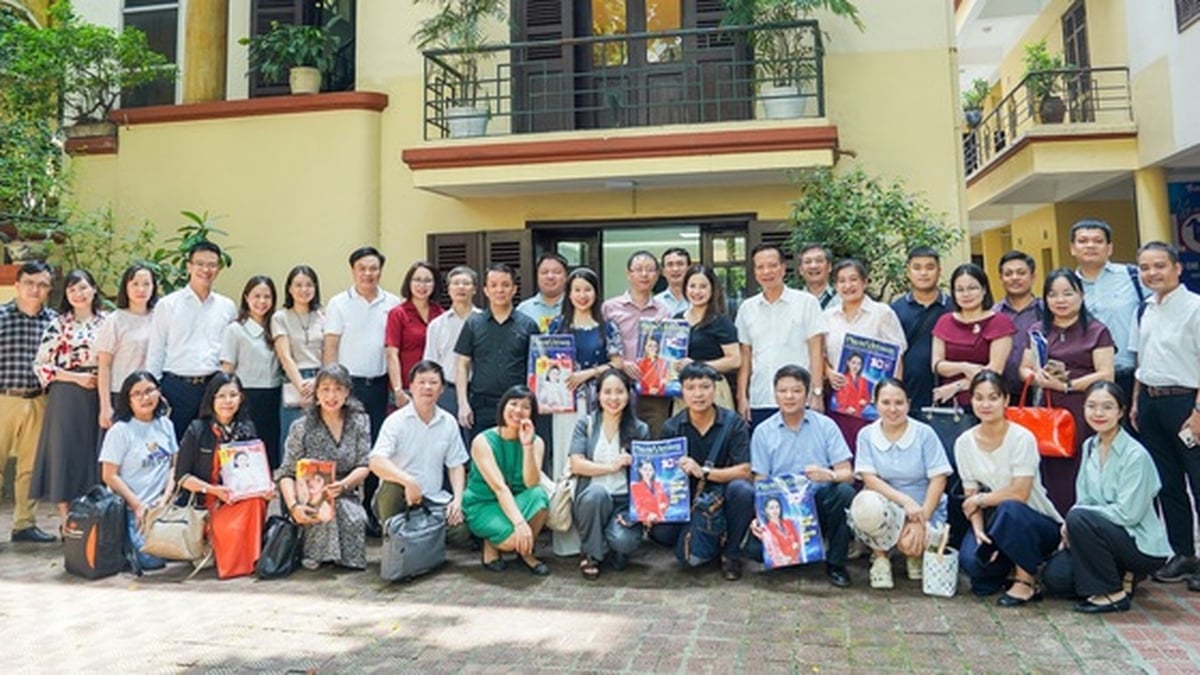






























































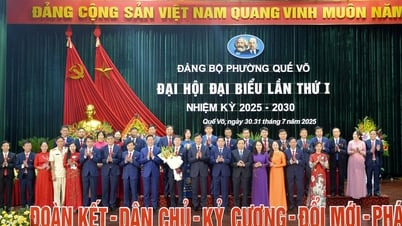

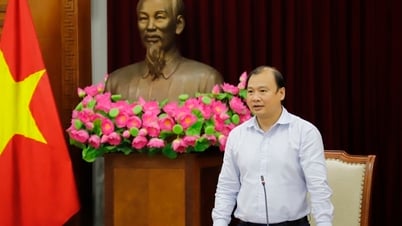
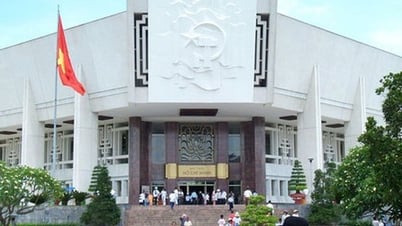


























Comment (0)